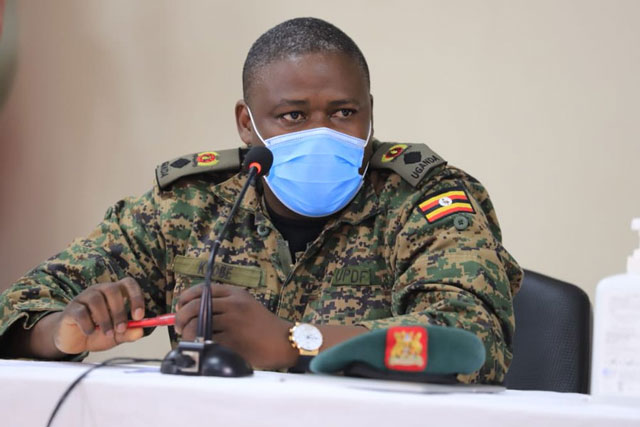
Kampala, Uganda | THE INDEPENDENT | The country needs much better investment in health facilities to respond effectively to the Covid-19 third wave.
Lt. Col Dr. Henry Kyobe, the National COVID-19 Incident Commander says that the Ugandan health system might not fare any better than it did during the second wave.
According to Kyobe, the core capacities needed to respond to the disease have not improved even from experience.
During the second wave, health facilities in different parts of the country were overwhelmed by the demand for Oxygen and Intensive Care Beds. At some point, the country was forced to borrow oxygen cylinders from neighboring countries like Kenya.
Kyobe adds that at the moment, hospitals should be increasing the patient beds in preparation for the next wave. He says due to low infections, some hospitals are reducing the number of COVID-19 beds.
Dr. Misaki Wayengera, the head of the ministerial COVID-19 Scientific Task Force says on a scale of 1 to 10, the country’s preparedness level stands at 6. According to Wayengera, the country’s bed capacity is still low and needs to be increased.
“We have tried as a country and several efforts like vaccination, community engagement, and testing have been carried out. We have also increased our bed capacity but we are not fully there. More needs to be done here but we also need to note that the number infected in the third wave will depend on the type of virus circulating,” he explained.
At the moment, the country’s COVID-19 positivity rate currently stands at 1.5. Kyobe says while the country is reporting a few cases in previous hotspots like Kampala, COVID-19 is still a threat.
“We are seeing worrying trends in Lango and Teso were women and youths are reporting more cases than before. We are worried this will mean new infections routes now exist and that the disease infections will now be mainly in homes,” he said.
To better handle cases in homes, Dr. Kyobe says the country needs to invest in extending patient care to all communities. In addition to this, he says the country needs to develop more capacity to respond to any other infections or waves that might break out.
He suggests the development of interventions to handle the disease at lower levels so that only critical cases are sent to hospitals while moderate and mild cases are handled by lower health facilities.
In addition to investing in increasing medical supplies, the scientists suggest mass vaccination and the use of other non-medical measures like masks to keep the numbers down.
“Vaccination works but it can’t stop new infections. Therefore, we need to rely on other measures like wearing masks, washing hands to make sure that we keep new infections down,” Kyobe said.
****
URN
 The Independent Uganda: You get the Truth we Pay the Price
The Independent Uganda: You get the Truth we Pay the Price



